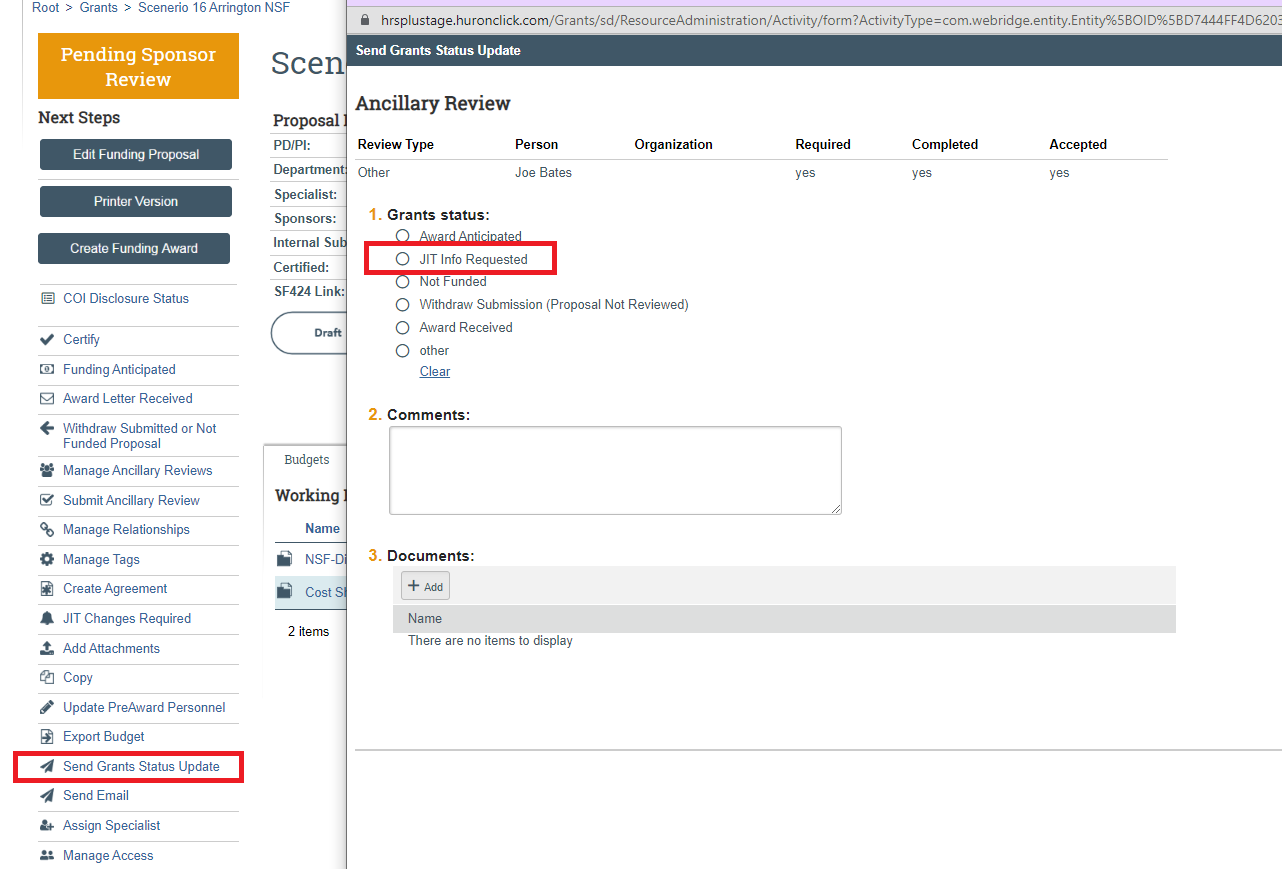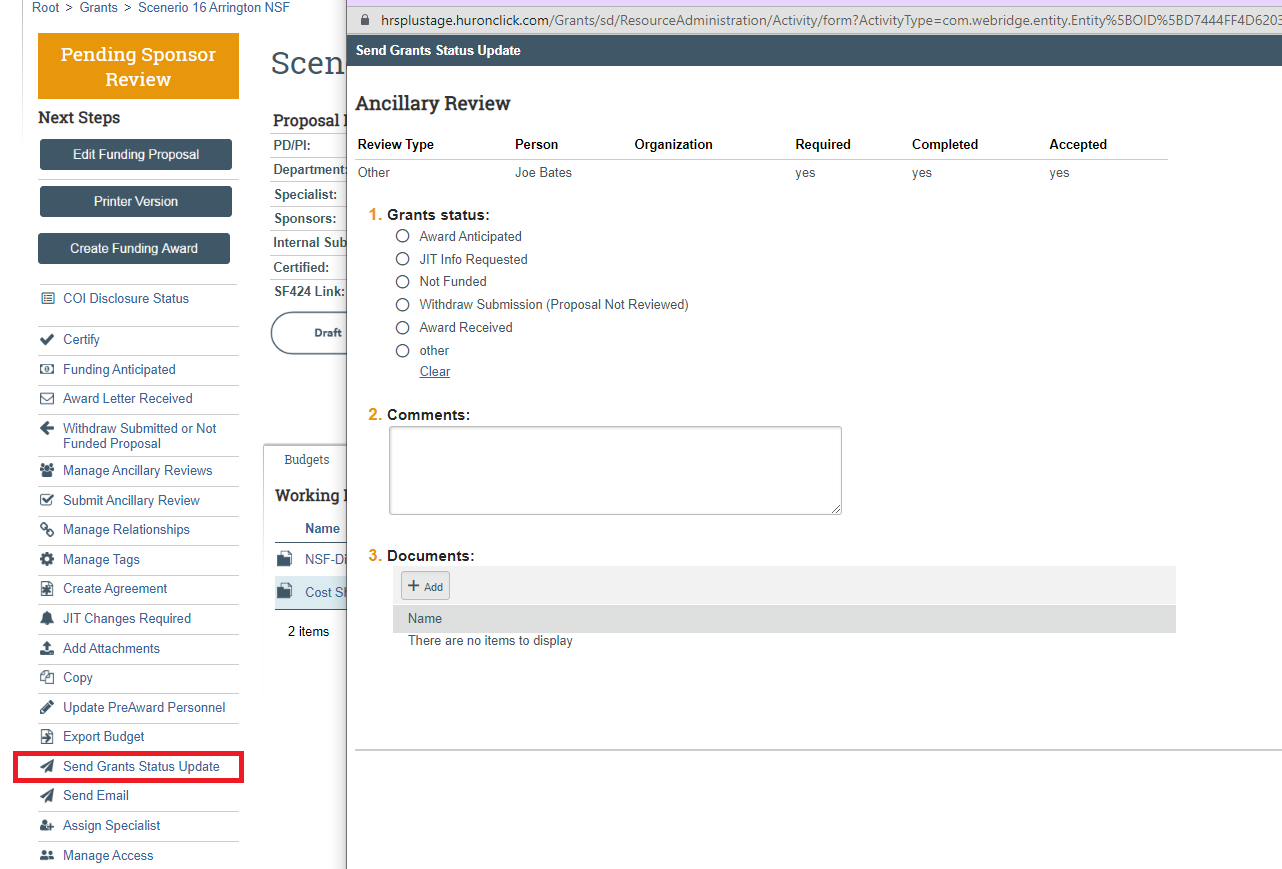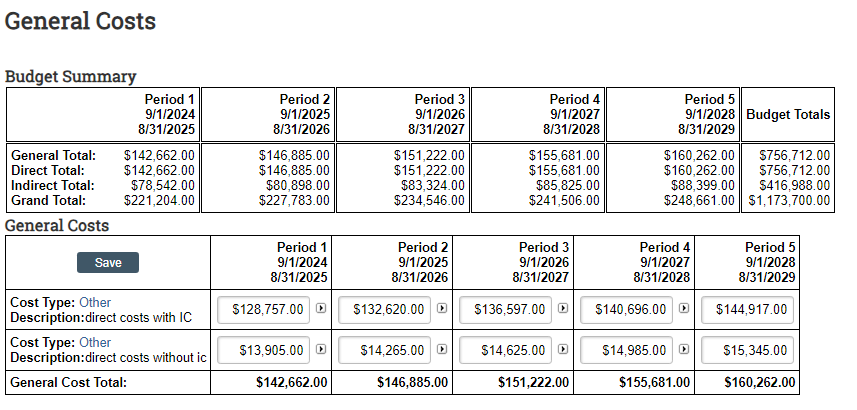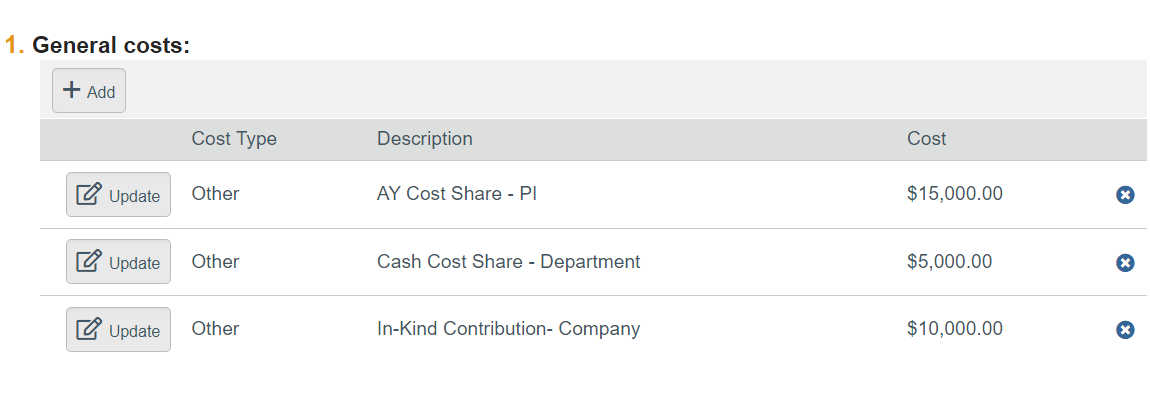Welcome to the LIRA Learning page! This site houses training resources for how to use Lehigh's Integrated Research Administration (LIRA) system for proposal development & submission, sponsored agreement initiation, and award administration.
The sections below offer training materials and "How-To" videos for completing functions in LIRA across the lifecycle of a sponsored project.
Conflict of Interest
The COI module in LIRA is used to collect all required disclosures per the university’s Conflict of Interest policy and the fCOI Related to Research and Sponsored Programs Policy. Contact incoi@lehigh.edu for questions about submitting COI disclosures.
Resources - Completing an Annual Disclosure:
Resources - Completing a Sponsored Program Disclosure:
Please email incoi@lehigh.edu for assistance or to schedule a meeting by appointment.
LIRA Basics
LIRA is available via single sign-on to all Lehigh personnel with responsibility in sponsored research. Faculty, research staff, department leadership, and ORSP all access the LIRA system and can carry out different functions depending on their assigned role(s).
| System User Roles | Module | System Responsibility |
|---|---|---|
| Study Staff | Grants, Agreements | Creates and submits Funding Proposals, Award Modification Requests, and non-funded agreements. Note: All users in LIRA have these roles |
| Department Reviewer | Grants | Reviews, requests changes (if necessary), and approves a Funding Proposal before it is forwarded to ORSP for final review, approval, and submission |
| Specialists | Grants | Manages proposals, awards, and award modifications Note: ORSP will have this role |
| SF424 Specialists | Grants | Additional role given to ORSP Contract and Grant Specialists that allows them to submit an SF-424 |
| Award Approver | Grants | Activates and approves awards or award modifications in Final Review Note: ORSP will have this role |
| Agreements Reviewers/Managers | Agreements | Manages and Negotiates Agreements and Agreement Amendments |
Note: Lehigh Faculty and Staff have LIRA system access. Lehigh students do not have access to LIRA.
After logging into LIRA, you will land on the system dashboard. The video below details how to navigate within the LIRA dashboard space.
TIP: When searching in LIRA, utlize the "wild card" function to return search results that contain your text within any part of the results' name. To use, add a "%" in front of your search term.
| Term | Definition | Notes |
|---|---|---|
| Activities | Actions that can be executed by a user to update a record | |
| Award | A record created in LIRA after a sponsor has indicated they will fund the research submitted in the Funding Proposal | Awards have separate IDs from their associated Funding Proposal record |
| Funding Proposal | A record created in LIRA that contains submission information for a research project that will be submitted to a sponsor for funding | |
| ID | Auto-generated identification number created by LIRA for each record created in the system (e.g., FP00000001, AWD00000003) | |
| Inbox | Dashboard for users that contains a "to-do" list. | Your inbox contains records that you have to take action on |
| Record | A submission created within LIRA. Examples include funding proposals, awards, award modification requests, award modifications, agreements, and subawards | |
| SF-424 | The Grants.gov application for federal assistance. When submitting for a federal opportunity using System-to-System (S2S) capabilities within LIRA, an electronic SF-424 is created and eventually submitted from LIRA directly to Grants.gov | |
| SmartForm | A series of pages completed with information about the record (e.g., funding proposal, award, agreement, etc.) | |
| State | The status of a record in LIRA | |
| Workflow | The process through which a record passes from beginning to end | This is the approval chain for a record |
| Workspace | Contains key information associated with the record (State, Title, ID, etc.) and contains various activities a user can take on a record |
LIRA SmartForms are utilized throughout the system and capture only the necessary information for a particular record. If additional information is needed, SmartForms will adjust to capture all required data. Below is a video to introduce you to LIRA SmartForms:
Proposals
Creation and submission of grant proposals exists in the Grants Module of LIRA. The videos below offer an introduction to Funding Proposals in LIRA.
Additional Resources
- How to initiate a proposal in LIRA (Quick Guide)
- LIRA Funding Proposal Reference Guide
- Proposal Basics PPT
Adding a new sponsor to a LIRA proposal
If the appropriate sponsor is not listed in LIRA, please complete the following form for them to be added to the system:
Please note: it may take up to 1-2 business days for the new sponsor to be available.
REU Supplements and Additional Proposal Types
LIRA allows for proposals to be submitted to the grant sponsor in two ways: system-to-system( S2S) and non system-to-system.
System to System (S2S)
S2S is the process for a proposal that is submitted from a submission platform (LIRA) to Grants.gov. The sponsoring agency then accesses the submitted proposal from Grants.gov.
Anything submitted from LIRA to Grants.gov is considered a S2S submission and will include an SF424 Forms package. Please review the video below for instructions on how to manage an SF424 application package:
Most federal grant opportunities are available to be submitted via Grants.gov and, subsequently, system-to-system. The following are common exceptions applicable to Lehigh:
- NSF Collaborative Proposals
- NIH Multi Component Proposals
- Certain award modifications and supplements - please reach out to your Contract and Grant Specialist with questions about what award modifications can be processed S2S
Non System-to-System (non-S2S)
Non-S2S is the method of submission for all non-federal proposals that will be submitted. Below are common proposal submissions that will be submitted non-system-to-system:
- Incoming Subawards (Proposals where Lehigh is the sub) - Tip: Review the Incoming Sub Award Quick Guide
- Foundation Grants
- Professional Affiliation Awards
- State Grants
- Select Federal Grants
Uploading Proposal Documents to LIRA
Proposals submitted non-S2S should include all sponsor-required documents in the "Attachments" tab of the LIRA workspace:

Sponsor Portals
For non-S2S submissions that must be submitted via a sponsor portal (e.g. American Heart Association, Collaborative NSF proposals submitted through research.gov), study staff are responsible for initiating their proposals in the applicable portal. For any questions about this process, please reach out to your assigned Contract and Grant Specialist.
Proposals in LIRA are required to go through two review states within the funding proposal workflow in LIRA - Department Review and Specialist Reivew. Ancillary review is conditionally required.
To understand what is required of the PI/Study staff at each stage of review, please reference the Proposal Workflow Checklist
Department Review
Department Review is conducted by the chair and/or their delegates of the responsible department. To learn how to submit a proposal for department review, please review the video below:
Note: For Lehigh's process, the SF-424 section of the proposal does not need to be completed before submitting for department review, it only needs to be created.
Departments are required to review the following elements of a funding proposal:
- Space/Location where research will be performed
- PI Effort
- Cost Share
- Equipment
For a step-by-step guide of completing a Department Review, please see the instructions below:
Specialist Review
Specialist Reivew is conducted by the Office of Research and Sponsored Programs. A proposal enters the Specialist Review state after being approved by the department level review. Your Contract and Grant Specialists in ORSP will then review the full proposal and submit to the sponsor.
Ancillary Review
Ancillary Review is required for proposals that include key personnel from outside of the submitting PI's department. In these instances, an ancillary review should be assigned to the chairs of the additional departments.
Review the following resources to understand how to submit and respond to an ancillary review:
- How to Submit an Ancillary Review (Video)
- How to respond to an Ancillary Review (Video)
- Ancillary Review Training (PPT)
Responding to Requested Revisions
As a proposal routes through the review process, both department and specialist reviewers can request revisions to the proposal:
When a reviewer requests changes, automated notifications will be sent via email to the PI of the proposal record.
Review the video below for information on how to respond to requested revisions:
Grant opportunities will sometimes require submission of documentation prior to a full proposal submission. These submissions– be it a concept paper, a letter of intent, etc– are all pre-proposal submissions.See the guide below to understand how to manage a pre-proposal submission in LIRA:
After a proposal has been submitted to a sponsor, PIs may be notified when the sponsor needs additional information before an award can be issued.
For NIH, this process is called Just-in-Time (JIT). In LIRA, there are actions modeled after the JIT process that Lehigh ORSP will use for all changes or updates requested by the sponsor in between proposal submission and award stage.
Post-Submission: Notification of Requested Documents/Information
After a proposal has been submitted to the sponsor, the FP record in LIRA will be in a “Pending Sponsor Review” state.
Upon receipt of requested information or documents from the sponsor, notify your ORSP representative with the “Send Grants Status Update” action from within the LIRA FP record:

Include a copy of the sponsor request in the documents field of this pop-up.
Provide JIT documentation
Once notified, your ORSP representative will coordinate with study staff on the proposal to provide the required documentation for the JIT request.
JIT documentation often includes Current and Pending Support, compliance information, and budget revisions.
ORSP will submit the JIT information and update the FP record once everything has been submitted to the sponsor.
Notification of Funding Decision
After a proposal has been submitted, any updates to the funding status should be reflected in LIRA.
If you receive a notification from the sponsor that a proposal has not been funded (or any other update about the status of the proposal), utilize the Send Grants Status Update action in the proposal workspace of LIRA:

A pop-up will appear for you to provide a copy of the correspondence received from the sponsor, where applicable, and a comment box to communicate the needed update.
Once notified, your ORSP representative will take action to update the LIRA record.
All student fellowship proposals should be submitted and routed through LIRA by the student's mentor and/or the supporting department. Specifics on what is required for fellowship proposal in LIRA can be found in our Fellowship Proposal Process Guide:
Budgets
The main purpose of the LIRA budget module is to serve as the budget of record for a sponsored project. It includes the ability to create cost-share budgets and subaward budgets, as applicable, so the full scope of a proposed project is captured correctly.
When developing grant proposals, it is a requirement to use Lehigh's internal budget spreadsheet to document the requisite detail. Once finalized, the internal spreadsheet must be uploaded into the LIRA record along with the sponsor required budget justification. The final budget numbers will then be entered into the LIRA budget workspace by the PIs and/or Department Study Staff prior to submitting the proposal for Department Review. Effective January 2, 2024, only total direct and indirect costs will need to be entered into the LIRA budget module. Please review the updated LIRA Budget Guide for detailed instructions on this process.
As an introduction to the budget workspace in LIRA, please review the budget navigation video below:
Budget Development Tool
Additional Resources
The following section includes important budget information to help guide the budget devleopment process in LIRA.
Below is a video that offers a demonstration of completing a budget in the LIRA module.
The following section includes important budget information to help guide the budget development process in LIRA.
The purpose of the LIRA Budget module is to:
- record the direct and indirect cost totals being proposed to a sponsor
- capture effort committed by the PI and all Senior Personnel on a project. This data is used for the faculty-generated Current and Pending Research Support Tool in Argos and for sponsor-required reporting
- Document all mandated cost share committed to a sponsor
General Budget Information
The General Information section of the budget SmartForm captures important information about your budget. Please confirm the following in this section:
- The correct F&A Cost base and rate are selected
- Q4 Travel should always be “No”
- Q5 should always be “Yes”
- Q6 salary cap: If the sponsor has an annual salary cap, please include it here.
Personnel Costs Definition
The personnel costs Definition section of the LIRA budget module must include all project Senior personnel. This includes the PI, Co-PI, and anyone designated a Senior Person who has measurable effort on the project.
Personnel Costs
The personnel costs section of the LIRA budget module is where effort is recorded for the PI and all Key/Senior personnel.
The purpose of this section is to:
- capture the effort % for the PI and all Senior Personnel for each budget period of the project. This section will store the proposed effort for each Senior Person on the project and will be used for the faculty-generated Current and Pending Research Support report. This data should match what is proposed to the sponsor.
Do not enter any salary information into LIRA, only effort should be entered:

General Costs
As of January 2, 2024, the LIRA budget module only requires entry of total direct costs and indirect costs. Additional details are not required to be entered because all necessary detail will be captured on the uploaded internal budget spreadsheet. Therefore, if entering a budget that uses our MTDC base*, you will only need two general cost definitions. They are as follows:
- Other: Direct Costs with IC
- Other: Direct Costs without IC
Your Lehigh internal spreadsheet will provide you with the total amount of Direct Costs with IC and Direct Costs without IC for each budget period. You will enter these totals into the appropriate LIRA cost definition.
For example:

*Note: If using TDC as your F&A base, you will only need to include one cost definition category, “Other: Direct Costs with IC” since all costs will be included in that category.
No other general cost detail will be required in the LIRA budget module.
Cost Share Budgets
Cost share is the term applied to any cost on a sponsored project that is not directly paid for by the sponsor of the project. It can also be referred to as cost matching.
If cost share is mandated by the sponsor and is part of the proposal requirements, a cost share budget should be created to document the sources of cost share.
General Budget Information for Cost Share Budgets
- Question 3: review and confirm the auto-populated F&A allocation
- Question 4: Always select “no”
- Question 5: Always select “no”
- Question 6: Always enter “0”
General Costs Definition for Cost Share Budgets
When entering a general cost in a cost share budget, you must specify the type of funds and the source of the funds in the description (Question 3) of the cost definition. This text box should include a description of the cost item, the type of funds used, and a source of the funds. For instance, “AY Effort, Cash - Industry Partner, In-Kind - Air Products”.
Questions 4 and 5 for each itemized cost should always be answered “no”.

Cost Share and Salary Caps
The LIRA system is designed to capture salary over a sponsor salary cap and automatically include it in the cost share budget. However, this functionality will not work when only total direct costs and indirect costs are entered because individual salaries are not being captured in the budget. To capture salary cap overage, it will be included as a line item in the cost share budget as follows:

The amount to include as overage will need to be calculated during the development of the internal detailed project budget.
Required Documentation
The following circumstances always require documentation to confirm cost share:
- Third-party funds: the third party should provide a signed letter confirming their commitment to providing the funds
- Unfunded effort for personnel not within the PI’s department: the chair or dean from the other department(s) should confirm approval for the cost share in writing. Email documentation is acceptable.
In the Attachments tab of the cost share budget, upload supporting documentation for the cost share.
TIP: To export the cost share budget to Excel, click the cost share budget within the Funding Proposal, and then click Export Budget within the cost share budget workspace. The budget will then be available in Excel format under the History tab within the cost share budget workspace.
Outgoing Subawards
“Outgoing subawards” refer to funds awarded to Lehigh and then dispersed to external subrecipients.
Subaward budget information should be entered within the budget workspace of the proposal. The instructional video below details how to enter a subaward budget:
For more information about outgoing subawards, including non-budget information, see the guide below:
Awards
LIRA will support Lehigh's funded award process. While the process is predominately a function of ORSP, PI/Study Staff will update the Award record with the following information to aid in the setup process:
- Building name(s) room number(s) where research will be performed
- IC Distribution %
- Authorized Signers
- Personnel with Banner Viewing Access
- Personnel with Payroll Access in Argos
This data will be captured and tracked via an Ancillary Review sent from ORSP.
Additional Resources
When you need to request a change to an active award, LIRA supports that process through Award Modifications. You will use the system to request an award modification that will be sent to your CGS in ORSP. They will review your request and, if approved, will submit the request formally to the sponsor. ORSP will finalize the award modification in LIRA to ensure the award record is updated appropriately.
Here is a video on the Award Modificaiton Process:
Agreements
LIRA is where you will initiate and manage the following Agreements types:
- Business Associate Agreement (BAA)
- Data Use Agreement (DUA)
- Outgoing Subawards
- Material Transfer Agreement (MTA)
- Non Disclosure Agreement (NDA)
- Sponsored Research Agreement (SRA)
- Research and Testing Agreement
- Testing Services Agreement
The chart below shows the agreement type and the associated Responsible Office who will be in charge of reviewing, negotiation, routing, and signing the agreement. If you have questions about a submitted agreement, please reach out to the following contacts from the appropriate Responsible Office:
- Tech Transfer: Rick Smith / res419@lehigh.edu
- LTS: Eric Zematis / ejz218@lehigh.edu
- ORSP: Contact your assigned Contract and Grant Specialist
| Acronym | Agreement Type | Agreement Initiator | Notes | Responsible Office |
|---|---|---|---|---|
| CDA | Confidentiality Disclosure Agreement | PI/Study Staff | Also known as: Non-Disclosure Agreement, Confidentiality Agreement, Confidential Disclosure Agreement, Proprietary Information Agreement, or Secrecy Agreement | Tech Transfer |
| DUA | Data Use Agreement | PI/Study Staff | Also known as: Data Trasfer and Use Agreement | LTS |
| MTA | Material Transfer Agreement | PI/Study Staff | Tech Transfer | |
| BAA | Business Associate Agreement | PI/Study Staff | Dictated by HIPAA, BAAs outline the responsibility of another party when it comes to Protected Health Information (PHI) | LTS |
| SRA | Sponsored Research Agreement | ORSP | Also known as: Research Funding Agreement, Grant Funding Agreement, Grant Support Agreement | ORSP |
| SUB | Outgoing Subaward | ORSP | Also known as: Outoing subcontract, outgoing subagreement | ORSP |
| RTA | Research and Testing Agreement | PI/Study Staff | ORSP | |
| TSA | Testing Services Agreement | PI/Study Staff | ORSP |
Please review the videos below on how to create and submit an Agreement in LIRA:
